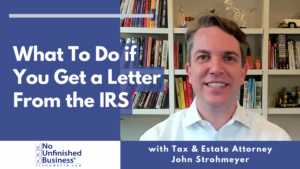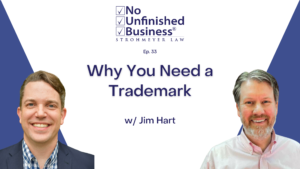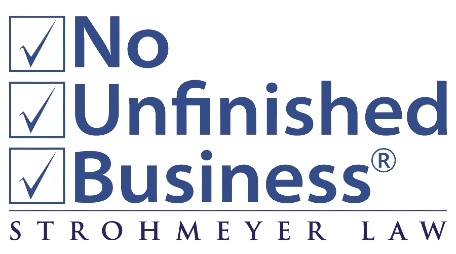What Happens to Debt When You Die?
You can’t take it with you, right? Debt just disappears when you die, and your family gets all your stuff, scott-free! Sadly, it doesn’t work like that.
The Basics of Debt After Death
You’re getting ready to pass. You’ve just loaded up with your American Express, Visa, Discover, and any other card you can think of with every bit of debt imaginable. What happens to those debts when you die?
Short answer: your debt still exists, and your estate’s assets can or will be used to pay them off. There are some immediate concessions for surviving spouses and family members before we get to the debts, then there’s a set hierarchy of which creditors get paid first, under what conditions, and in what proportion. It’s a somewhat complicated set of rules, but we’re here to make it simple and easy to understand.
We first need to consider what type of debt it is, because that’s going to affect what happens to it. Then we can understand who gets paid first, because we don’t want to just have a rush to the courthouse to try and get what’s owed.
What type of debts are we talking about?
There are three general types of debt we consider in probate, each with different rules here in Texas.
Secured Loans
For certain debts, it doesn’t matter that you’ve passed on — that debt remains intact. The most common is secured loans, debts where you borrowed money to buy a thing, such as a mortgage on a house, a car note, or some piece of equipment. You borrowed money, and, in exchange, you signed a lot of paperwork telling the bank that if you forget to pay, they can come take that thing back. Those are debts will be paid one way or another, and your beneficiaries, if they take the asset, will remain on the hook to pay the remainder of the balance.
If you buy a house right before you pass, it has a $300,000 note on a $400,000 house, and you then leave that house to your kids, they will receive it, and it’ll be worth $400,000, but they’re going to have to come up with the 300 grand to pay off the note. The banks can be very unhappy if they don’t do that.
The most common option may then be to just sell the house. The same is true with buying a car. Even though you always wanted that Ferrari, you can’t just get a note on it, drive it for a few weeks before you pass, and then have your kids enjoy it without having to pay the bill. Somebody’s going to have to pay off the bank when the note is due.
Unsecured and co-signed debt
Now, with other debts, it’s a little less clear what happens. Unsecured debts, such as credit cards and loans to individuals, are not necessarily going to get paid, especially if there aren’t enough assets in the estate to pay them off. The problem is that they’re going to have to wait in line to get paid off.
Now, the beneficiaries of the estate take a back seat to the creditors, but it’s important for creditors to make sure that they protect their rights by properly claiming and presenting their claim to the executor of the estate.
So, secured notes are going to have to get paid back one way or another. Why? The bank loaned money to allow you to purchase a thing and we can point our finger at the thing that was purchased. When it comes to an unsecured note, like a credit card, it’s not as clear that they will get paid back. If you used your credit card at Taco Bell, there’s not really a way to repossess those tacos (and they wouldn’t want to).
What if somebody else had co-signed on that loan? If you have a loan where two of you, say a husband and wife, both signed on the dotted line for that debt, the survivor is going to be on the hook for the full amount of the debt.
So, there are three general options. If it’s secured, the bank’s going to get paid or they’re going to get their thing back. If it’s unsecured, good luck to the bank trying to get money. If we’ve got a co-signer on, then the co-signer who’s still alive is probably still going to be on the hook for that debt.
Schedule a free consultation with Strohmeyer Law to protect your family with an estate plan.
Priority of Claims
Now, I mentioned earlier that there is a priority for claims that are going to get paid. State policy is in place to create a hierarchy and keep everyone from insisting on being paid first.
Allowances, exemptions, and must-pays
There are certain things we want to make sure get paid off. Here in Texas, the first things that get paid are a family allowance and a homestead exemption or exempt property that’s set aside for the survivors.
Exempt property includes things like the homestead and a certain amount of cash that we can take and pass on the spouse. This is off the top and it makes sure that the spouse gets protected. For public policy reasons, we just want to make sure that they are taken care of, even if it means the defeating the creditors.
Next up is a family allowance. This is an amount that’s set aside for the support of the decedent’s surviving spouse and possibly any minor children. It’s there for maintenance of the family for one year, starting after the date of death. This isn’t an amount that has to get paid out, rather just items that can be paid out.
Order and types of claims
Next we think about certain debts where the debtor’s not going to go away. The IRS is one example where you’re going to be paying the IRS no matter what. You’re going to have to file a final tax return, and you may even have to file an estate tax return because the IRS will expect that they get paid.
Beyond that, Texas law sets out a priority of claims that will get paid. There are eight classes of claims and these interact with the exempt of property, the family allowance, and the IRS is to provide a hierarchy of who gets paid first. So, if we start putting these in order, first things off the top, the exempt property homestead, and that exempt property is going to go to the surviving spouse.
Class One claims
Next are class one claims under the Texas estates code: funeral expenses and expenses for final illness up to $15,000 for each of those categories. The important thing to note is this is not unlimited, but it does ensure that doctors get paid for final care and funeral expenses do get paid up to $15,000.
These are both limited amounts. If you have expenses over $15,000, those get kicked down to class A claims, which we’ll get to in a bit.
Next, the family allowance comes in. This is that one year of support for the surviving spouse.
Class Two claims
Class one and class two are separated by the family allowance and, above all of them, are the exempt property.
In Class Two, first we’ve got the expenses of administration. These are things that are used to protect, defend, safe-keep, and preserve the assets of the estate. It also includes (selfishly) lawyer’s fees in assisting with the administration. So, we’re here pretty much at the top, trying to preserve and protect things for the family, as well as the surviving spouse.
After that, we skip into federal debt. So, this is where the IRS steps in. They’re going to allow the exempt property, the family allowance, the estate administration, the funeral finance, and the final medical expenses to get paid before they do. But, everybody else is going to come behind them.
Classes Three through Eight
After that comes class three claims under our Texas statutory scheme. Secured creditors get to step in here. So, if they have a claim, this is where they would get paid out. They would want to get paid off on what is going to be possibly sold from their asset.
After that comes class four claims. So, these are principal amounts and any accrued interest on delinquent child support payments. So, the IRS is going to be ahead of the delinquent child support payments, but the delinquent child support payment as a class four claim is still prioritized over a lot of other things.
We then get into class five claims. So, these are claims for taxes, penalties, and other interests due under the Texas tax code. These claims are making sure the state of Texas gets paid off for any taxes that may be due.
Class six claims are going to be at the cost of confinement. So, if you have been in jail and there are any costs to your confinement, this is where they get paid.
Class seven claims will be claims for repayment of medical assistance under chapter 32 of the human resources code on behalf of the decedent. These claims are basically repaying the state for medical care.
Finally, class eight claims include everything else. This is where your credit cards go. This takes off if you are owed money from a neighbor. Finally, if you have any claims left over from your funeral clients or cost of final illness, they get lumped in here.
So, we pay these in order. If you run out in a higher claim, then those lower claims are going to get defeated. This is why credit card companies are going to be making sure they let you know, “Hey, don’t forget to pay us!” They want to make sure that you pay them off and they’re going to try and get paid before everybody else, but they come at the end. So, it’s important to remember: they are there at the end. They get paid in that class eight after everybody else has been paid.
What if the money runs out?
What happens if we don’t have enough money to pay off a particular class? Let’s say everybody in class one through seven has been paid off, and we’re down to class eight claims. We have $100,000 of claims and only $10,000. Who gets paid? Everybody’s going to get paid, but they’re only going to get paid in proportion to their claim.
So, there’s $100,000 of claims. If one of those claims is for $50,000, that claim is going to get paid $5,000. They’re not going to get paid $10,000 because they have the biggest claim and they take all of it. Nope. Everybody gets paid proportionately. If we run out of assets, we run out of assets. Unfortunately, there’s nothing left for the beneficiaries. We’re very sorry.
In Summary
To wrap it up, beneficiaries of the estate aren’t personally on the hook for any of these claims. The assets of the estate must pay off the claims.
If there’s not enough, then the debt doesn’t transfer on to the beneficiaries. The flip side of this though, is that if beneficiaries receive assets for the estate, but there were remaining claims, the beneficiaries remain on the hook for that claim. So, if there’s $100,000 of debt and $200,000 of assets, and the beneficiaries just take the $200,000 and put it in their pocket and walk away, the creditors can and should be going after the beneficiaries to get paid off.
It’s important to note that you can take some assets. There are procedures for defeating some of these debts. It still means you’ve got to follow the rules and certain people are going to get paid off while others may have their claims defeated.
End-of-Year Strategies for Irrevocable Gifting Trusts
As the year draws to a close, there are some crucial actions to take with an irrevocable gifting trust.
What to Do If You Receive an IRS Letter
Receiving a letter from the IRS might send shivers down your spine. So what's your first step? Is it always a cause for alarm? Let's walk through what you should do.
Why You Need a Trademark
We'll explain the the four main areas of intellectual property for business owners, why trademarks are crucial, and how to get your marks registered.





